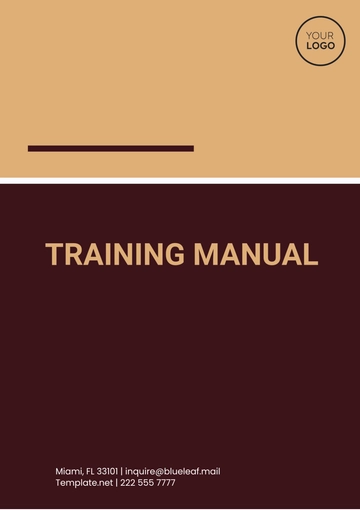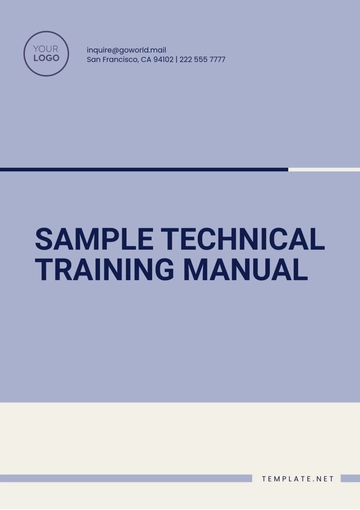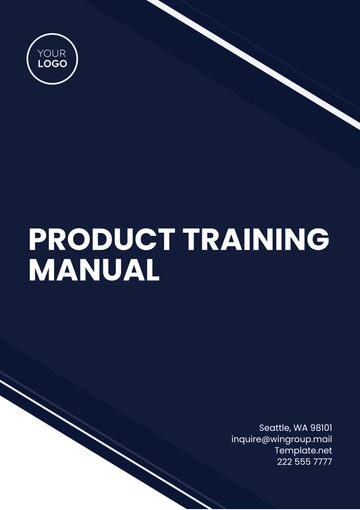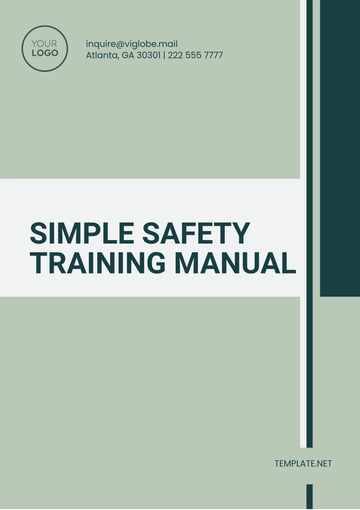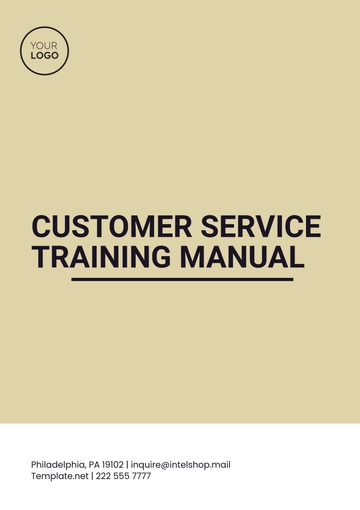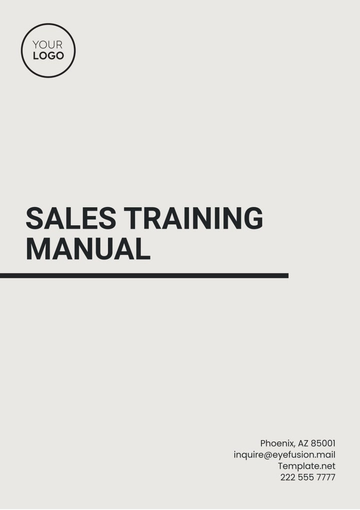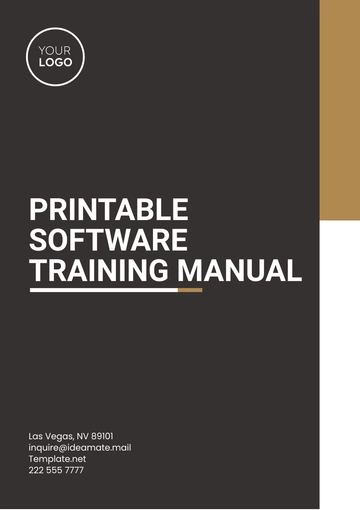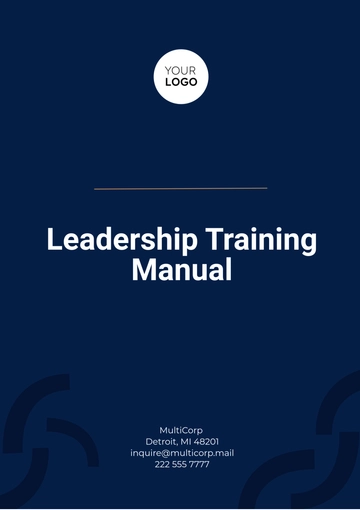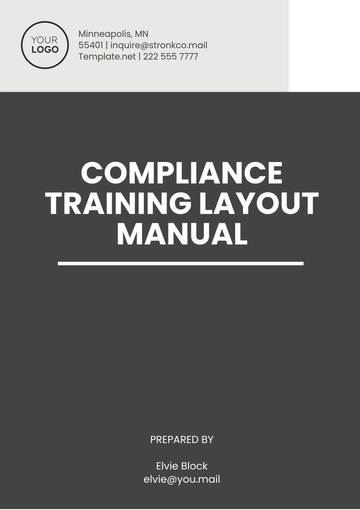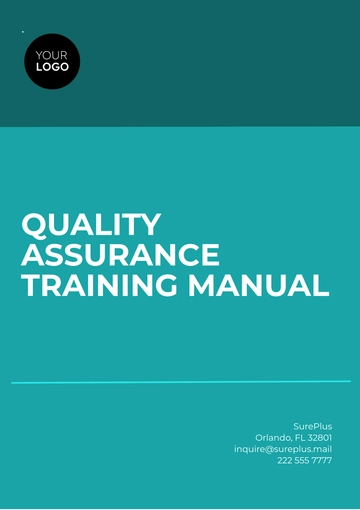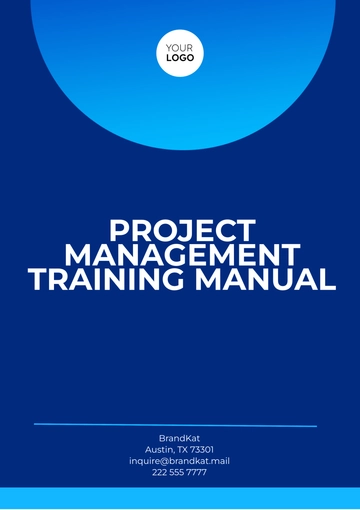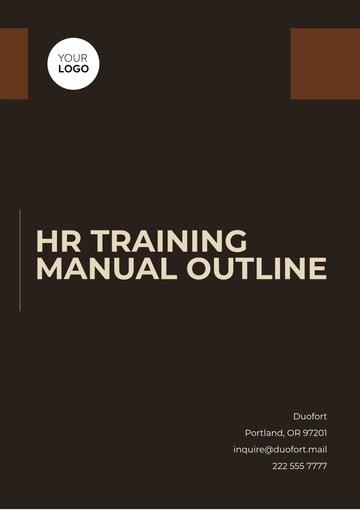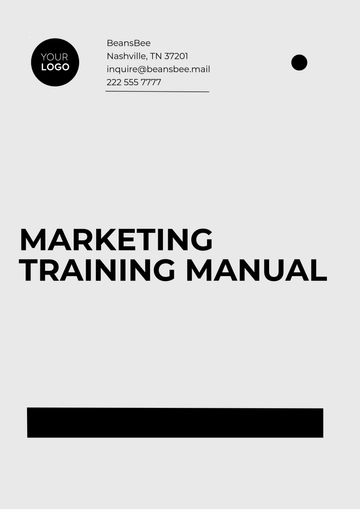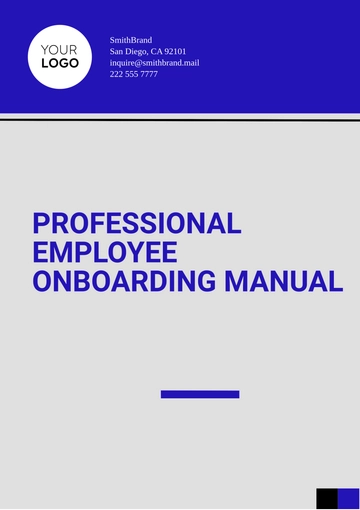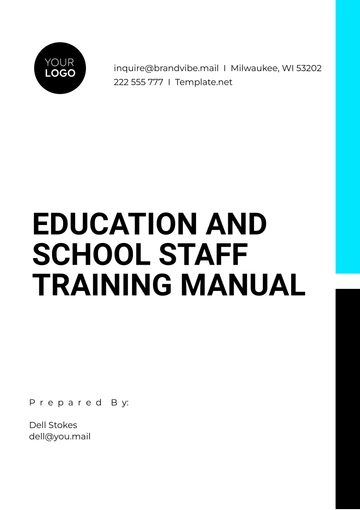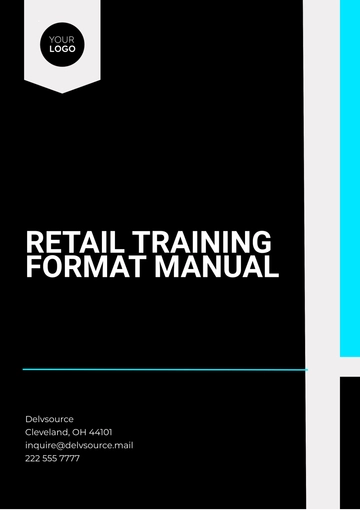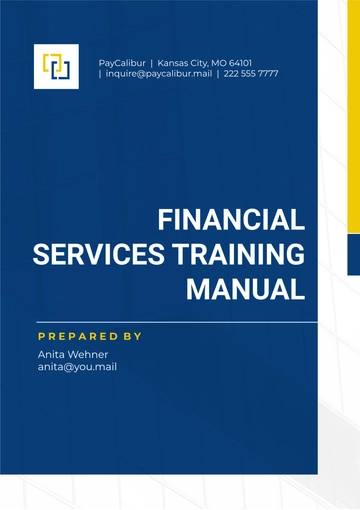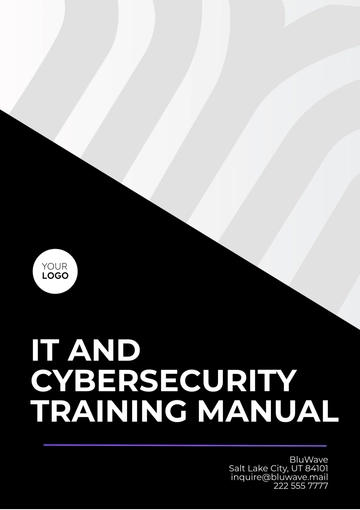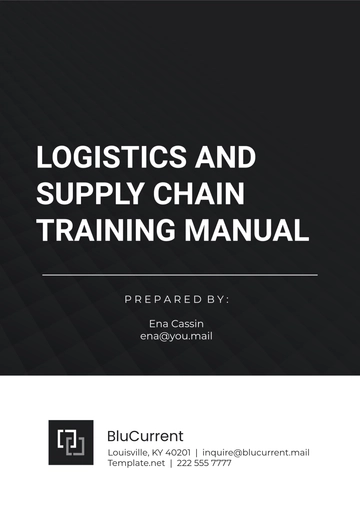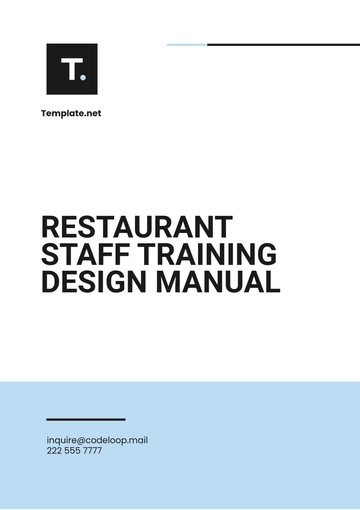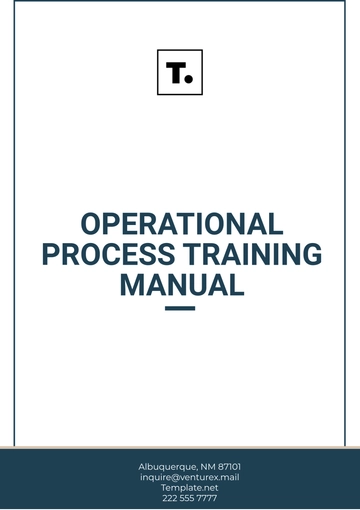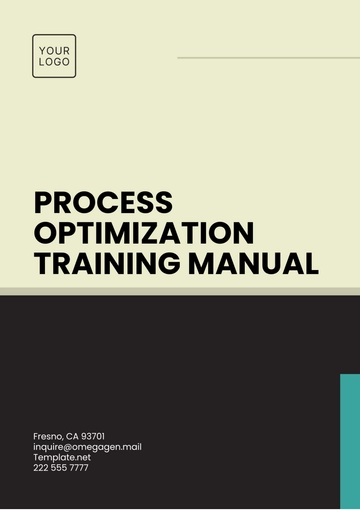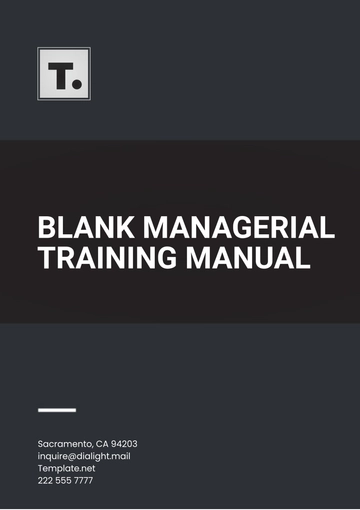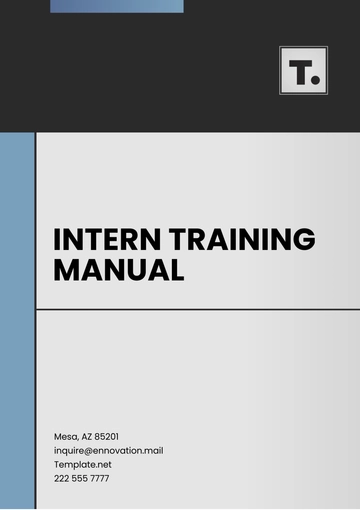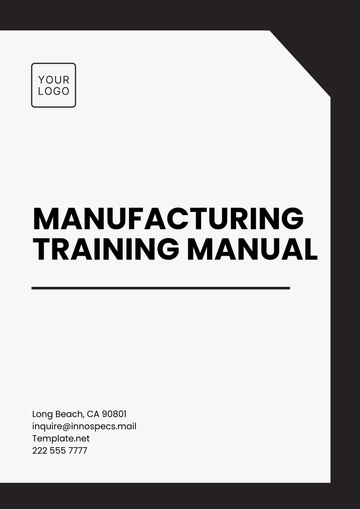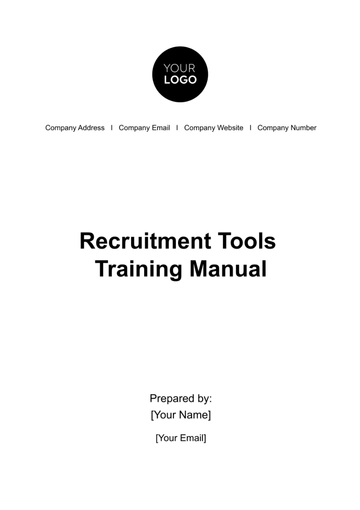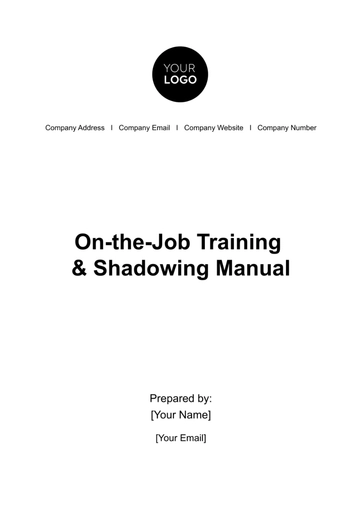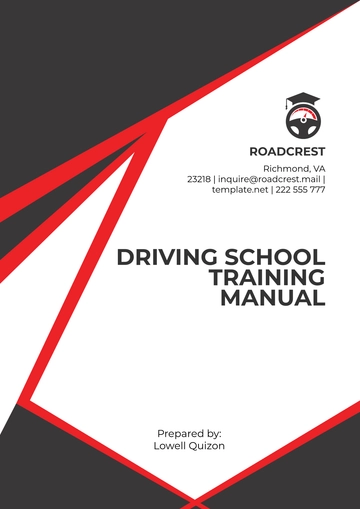Free Nursing Home Staff Compliance and Ethics Training Manual
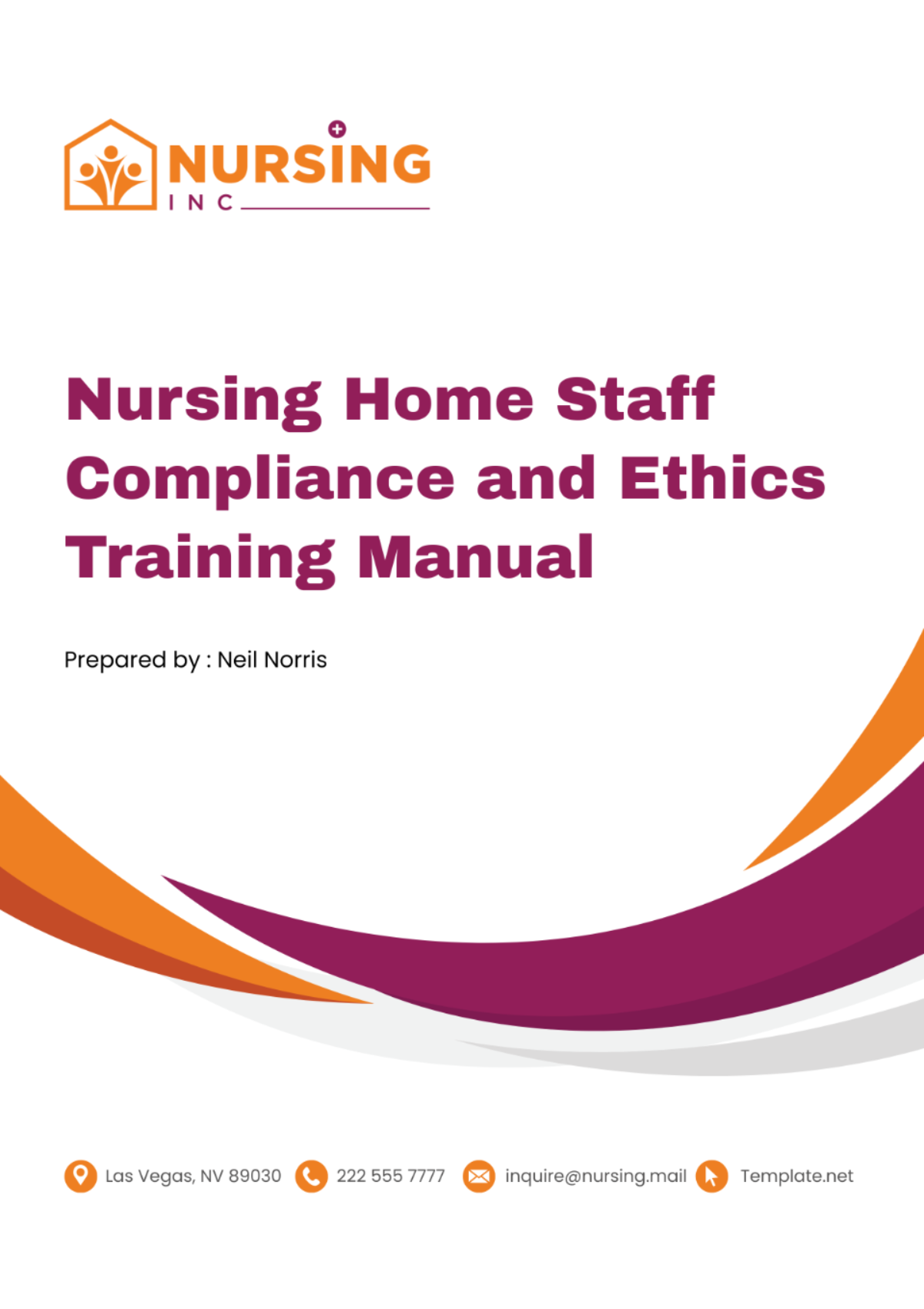
I. Introduction
Welcome to the Staff Compliance and Ethics Training Manual of [Your Company Name]. This manual serves as a comprehensive guide designed to foster a culture of compliance and ethical conduct within our nursing home facility.
A. Purpose of the Manual
Guidance: This manual provides guidance to all staff members on the principles of compliance and ethics that underpin our operations. It serves as a roadmap, outlining the standards and expectations for ethical behavior and compliance with all applicable laws and regulations.
Awareness: The manual aims to raise awareness about the importance of adhering to laws, regulations, and ethical standards in all our activities. It underscores the fact that every action we take has implications and that adherence to our compliance and ethics standards is integral to the quality of care we provide.
Responsibility: The manual also emphasizes the responsibility of each staff member in upholding these standards. It reinforces the idea that compliance and ethics is not just the responsibility of a single department, but a collective effort that requires the participation of all staff members.
B. Importance of Compliance and Ethics
Trust and Reputation: Compliance and ethics are crucial in building trust with our residents, their families, and the community. They are also key to maintaining our reputation as a reliable and trustworthy care provider.
Quality of Care: Adherence to compliance and ethics standards is integral to the quality of care we provide. It ensures that our residents receive care that is not only of high quality, but also respects their rights and dignity.
Legal Obligations: Compliance and ethics also involve meeting our legal obligations. This includes complying with all relevant laws and regulations related to healthcare provision, employment, and business operations.
C. Scope of the Manual
Applicability: The manual applies to all staff members of [Your Company Name], regardless of their role or position. Everyone is expected to understand and adhere to the standards outlined in this manual.
Content: The manual covers a wide range of topics, including our compliance program, code of conduct, legal and regulatory requirements, ethics in patient care, reporting violations, and more.
Updates and Revisions: The manual is a living document and will be updated and revised as necessary to reflect changes in laws, regulations, or our internal policies and procedures.
II. Compliance Program
Our compliance program is designed to ensure that we meet all legal and ethical obligations, and provide the highest quality of care to our residents.
A. Objectives of the Compliance Program
Promote Compliance: The primary objective of our compliance program is to promote compliance with all applicable laws, regulations, and ethical standards. This involves educating staff members about these requirements and providing them with the resources and support they need to comply.
Prevent Violations: The program also aims to prevent violations of laws, regulations, and our code of conduct. This is achieved through regular training, monitoring, and auditing activities.
Detect and Respond to Violations: In the event that a violation does occur, the program provides mechanisms for detecting and responding to the violation. This includes procedures for reporting violations, investigating reports, and taking appropriate corrective action.
B. Key Elements of the Compliance Program
Leadership and Structure: Our compliance program is led by our Compliance Officer and supported by the Compliance Committee. They are responsible for overseeing the program, ensuring its effectiveness, and promoting a culture of compliance and ethics throughout our organization.
Policies and Procedures: The program is guided by our policies and procedures, which outline our compliance and ethics standards and expectations. These policies and procedures are regularly reviewed and updated to ensure they remain relevant and effective.
Training and Education: A key element of our program is regular training and education for all staff members. This training covers a range of topics, including our code of conduct, legal and regulatory requirements, and how to report a violation.
C. Roles and Responsibilities
Compliance Officer: The Compliance Officer is responsible for overseeing the compliance program, ensuring its effectiveness, and serving as a resource for staff members on compliance and ethics issues.
Compliance Committee: The Compliance Committee supports the Compliance Officer in managing the program. The committee is made up of representatives from various departments, reflecting the organization-wide nature of compliance and ethics.
Staff Members: All staff members have a responsibility to understand and adhere to our compliance and ethics standards. They are also encouraged to report any suspected violations and to seek guidance when they are unsure about a compliance or ethics issue.
III. Code of Conduct
The Code of Conduct is a key component of our Compliance and Ethics Training Manual. It outlines the standards of behavior that all staff members are expected to adhere to in their interactions with residents, colleagues, and other stakeholders. The following table provides an overview of the key areas covered in our Code of Conduct:
Area | Description |
|---|---|
Respect for Residents | All staff members are expected to treat residents with dignity, respect, and kindness at all times. |
Professional Conduct | Staff members are expected to maintain a high level of professionalism in all their interactions. |
Confidentiality and Privacy | Staff members must respect and protect the confidentiality and privacy of resident information. |
Compliance with Laws and Regulations | Staff members are required to comply with all applicable laws and regulations. |
Conflict of Interest | Staff members should avoid situations that could create a conflict of interest. |
A. Respect for Residents
Respect for residents is a fundamental principle in our nursing home. All staff members are expected to treat residents with dignity, respect, and kindness at all times. This includes listening to residents’ concerns, responding to their needs in a timely manner, and ensuring their comfort and well-being. It also involves respecting residents’ rights, including their right to make decisions about their own care.
B. Professional Conduct
Professional conduct is crucial in maintaining the quality of care and the reputation of our nursing home. Staff members are expected to maintain a high level of professionalism in all their interactions. This includes being punctual, dressing appropriately, communicating effectively, and treating everyone with respect. It also involves maintaining professional boundaries and avoiding inappropriate relationships with residents.
C. Confidentiality and Privacy
Confidentiality and privacy are key aspects of resident care. Staff members must respect and protect the confidentiality and privacy of resident information. This includes not disclosing resident information without proper authorization, not discussing resident information in public areas, and securing resident records to prevent unauthorized access.
D. Compliance with Laws and Regulations
Compliance with laws and regulations is a legal and ethical obligation. Staff members are required to comply with all applicable laws and regulations, including those related to healthcare, employment, and privacy. This includes staying updated on changes in laws and regulations, attending compliance training, and reporting any suspected violations.
E. Conflict of Interest
Conflict of interest situations can compromise the integrity of our nursing home and the quality of care we provide. Staff members should avoid situations that could create a conflict of interest. This includes not accepting gifts from residents or their families, not using their position for personal gain, and not engaging in outside activities that could interfere with their job duties.
The Code of Conduct serves as a guide for staff members in their daily interactions and decision-making processes. It helps staff members understand what is expected of them and provides a framework for handling ethical dilemmas. By following the code, staff members can ensure that they are acting in the best interests of our residents and upholding the values of our nursing home.
IV. Legal and Regulatory Requirements
In the nursing home setting, there are numerous legal and regulatory requirements that staff members must adhere to. These requirements are designed to ensure the safety, well-being, and rights of our residents, and to maintain the quality of care we provide.
A. Health Care Laws and Regulations
Health care laws and regulations govern various aspects of resident care, including:
Quality of Care: Laws and regulations set standards for the quality of care that nursing homes must provide. This includes requirements for staffing levels, resident assessments, care planning, and medical treatment.
Residents’ Rights: There are laws and regulations that protect the rights of nursing home residents. These include the right to be treated with dignity and respect, the right to privacy, and the right to make decisions about their own care.
Health and Safety: Laws and regulations also cover health and safety requirements for nursing homes. This includes requirements for infection control, medication management, and emergency preparedness.
Reporting and Documentation: There are also legal requirements for reporting certain incidents, such as suspected abuse or neglect, and for maintaining accurate and complete resident records.
B. Employment Laws and Regulations
Employment laws and regulations affect various aspects of our operations, including:
Equal Employment Opportunity: Laws prohibit discrimination in all aspects of employment, including hiring, promotion, job assignment, compensation, and termination.
Wage and Hour Laws: These laws regulate wages, overtime pay, meal and rest breaks, and other aspects of work hours.
Workplace Safety: Laws and regulations require employers to provide a safe and healthy workplace. This includes requirements for training, personal protective equipment, and reporting of workplace injuries and illnesses.
Employee Rights and Protections: Laws and regulations also provide various rights and protections for employees, such as the right to a reasonable accommodation for disabilities, the right to take leave for certain personal or family needs, and protections against retaliation for reporting violations of law or policy.
C. Reporting Requirements
Reporting requirements are a critical part of our compliance program. These requirements include:
Incident Reporting: Staff members are required to report any incidents that could affect the health or safety of our residents. This includes accidents, injuries, medication errors, suspected abuse or neglect, and any significant changes in a resident’s condition.
Regulatory Reporting: We are also required to report certain information to regulatory agencies. This includes data on our resident population, staffing levels, and quality measures, as well as any serious incidents or deficiencies identified during inspections.
Compliance Reporting: Staff members are also required to report any suspected violations of our Code of Conduct, policies and procedures, or applicable laws and regulations. This is a key part of our efforts to detect and correct compliance issues promptly.
V. Ethics in Patient Care
Ethics in patient care is a fundamental aspect of our work in the nursing home setting. It involves making decisions that respect the rights and dignity of our residents, while also promoting their health and well-being.
A. Respect for Autonomy
Respect for autonomy involves recognizing and respecting the right of our residents to make decisions about their own care. This includes:
Informed Consent: Before any treatment or procedure, residents should be provided with all the information they need to make an informed decision. This includes an explanation of the treatment, its risks and benefits, and any alternatives. This ensures that residents are not only aware of their treatment options but also understand the potential outcomes of each option.
Respect for Choices: Residents’ choices about their care should be respected, even if they differ from what the healthcare team recommends. This means acknowledging and honoring the resident’s right to self-determination and their ability to make decisions about their own health and well-being.
Advance Directives: If a resident has an advance directive, it should be followed. This document expresses the resident’s wishes about their care if they become unable to make decisions for themselves. It’s crucial to respect these directives as they represent the resident’s autonomy and personal health care preferences.
B. Beneficence and Non-Maleficence
Beneficence involves promoting the well-being of our residents, while non-maleficence involves avoiding harm. This includes:
Promoting Well-Being: Staff members should take actions that promote the physical, mental, and social well-being of our residents. This includes providing high-quality care, responding promptly to residents’ needs, and treating residents with kindness and compassion. It’s our responsibility to ensure that our residents feel safe, comfortable, and cared for.
Avoiding Harm: Staff members should avoid actions that could harm residents. This includes preventing mistakes in care, protecting residents from abuse or neglect, and taking precautions to prevent accidents and injuries. It’s essential to create a safe environment where residents can receive the care they need without fear of harm.
Balancing Benefits and Risks: When making decisions about care, it’s important to balance the potential benefits of a treatment against the potential risks. This involves considering the resident’s overall health, their personal preferences, and the potential outcomes of different treatment options.
C. Justice
Justice in patient care refers to the fair and equitable distribution of healthcare resources and the fair treatment of all residents. This includes:
Equal Treatment: All residents should be treated equally, regardless of their age, race, gender, religion, or other characteristics. This means providing the same level of care and attention to all residents.
Fair Allocation of Resources: Healthcare resources should be distributed fairly among all residents. This means ensuring that all residents have access to the care and services they need.
Advocacy: Staff members should advocate for the rights and needs of all residents. This includes standing up for residents who may be unable to advocate for themselves and ensuring that their voices are heard.
VI. Reporting Violations
Reporting violations is a critical part of our compliance and ethics program. It allows us to detect potential issues, take corrective action, and prevent future violations. All staff members have a responsibility to report any suspected violations of our Code of Conduct, policies and procedures, or applicable laws and regulations.
A. How to Report a Violation
If a staff member suspects a violation, they should report it immediately. This includes:
Identifying Violations: Staff members should be vigilant in identifying potential violations. This includes not only violations they observe directly, but also situations where they have reason to believe a violation may have occurred.
Reporting Channels: Staff members can report suspected violations through several channels. This may include their supervisor, the Compliance Officer, or a designated hotline. The specific reporting channels available will depend on our organization’s policies and procedures.
Timeliness: It’s important to report suspected violations as soon as possible. Prompt reporting allows us to take swift action to address the issue and prevent further harm.
B. Protections for Whistleblowers
We are committed to protecting staff members who report suspected violations. This includes:
Non-Retaliation Policy: We have a strict non-retaliation policy. This means that staff members who report suspected violations in good faith will not be subject to retaliation. Retaliation is a serious violation of our Code of Conduct and will not be tolerated.
Confidentiality: We will make every effort to maintain the confidentiality of whistleblowers to the extent possible. While we may need to disclose their identity for investigation or legal purposes, we will not disclose it unnecessarily.
Support and Resources: We will provide support and resources to whistleblowers. This may include counseling, legal advice, or other forms of assistance.
C. Investigation
Once a suspected violation is reported, we will conduct a thorough investigation. This includes:
Initial Assessment: Upon receiving a report, we will conduct an initial assessment to determine whether a full investigation is warranted. This involves reviewing the report, speaking with the whistleblower, and gathering any readily available evidence.
Full Investigation: If a full investigation is warranted, we will gather and analyze all relevant evidence. This may involve interviewing witnesses, reviewing documents, or consulting with experts.
Corrective Action: If the investigation confirms that a violation has occurred, we will take appropriate corrective action. This may include disciplinary action against the violator, changes to our policies and procedures, or other measures to prevent future violations.
VII. Training and Education
Training and education are key components of our compliance and ethics program. They ensure that all staff members have the knowledge and skills they need to comply with our Code of Conduct, policies and procedures, and applicable laws and regulations.
A. Initial Training
Orientation: All new staff members receive training on our compliance and ethics program as part of their orientation. This includes an overview of our Code of Conduct, policies and procedures, and the legal and regulatory requirements relevant to their role.
Compliance and Ethics Training: New staff members also receive specific training on compliance and ethics. This includes training on how to identify and report suspected violations, and how to make ethical decisions in their work.
Role-Specific Training: Depending on their role, new staff members may also receive additional training on specific compliance and ethics issues relevant to their work.
B. Ongoing Education
Refresher Training: All staff members receive refresher training on our compliance and ethics program on a regular basis. This helps to reinforce their understanding and keep them updated on any changes to our Code of Conduct, policies and procedures, or legal and regulatory requirements.
Updates on New Laws and Regulations: Staff members also receive updates on new laws and regulations that are relevant to their work. This ensures that they are always aware of the current legal and regulatory requirements.
Ethics Discussions: We also hold regular discussions on ethics in our workplace. These discussions provide an opportunity for staff members to explore ethical dilemmas, share their experiences, and learn from each other.
VIII. Auditing and Monitoring
Auditing and monitoring are important tools for ensuring compliance with our Code of Conduct, policies and procedures, and applicable laws and regulations.
A. Regular Audits
Compliance Audits: We conduct regular audits to check for compliance with our Code of Conduct, policies and procedures, and legal and regulatory requirements. These audits help us to identify any areas where we may be falling short and take corrective action.
Risk-Based Audits: We also conduct risk-based audits, focusing on areas where we believe there is a higher risk of non-compliance. This allows us to target our resources effectively and address potential issues before they become serious problems.
Audit Findings and Corrective Action: After each audit, we share the findings with the relevant staff members and develop a corrective action plan to address any issues identified.
B. Compliance Monitoring
Ongoing Monitoring: In addition to our regular audits, we also have ongoing monitoring activities to check for compliance. This includes monitoring of key performance indicators, reviews of resident feedback, and checks of documentation and records.
Reporting and Follow-Up: Any issues identified through our monitoring activities are reported to the relevant managers and followed up to ensure that corrective action is taken.
Continuous Improvement: Our monitoring activities also feed into our continuous improvement processes. We use the information we gather to improve our Code of Conduct, policies and procedures, and training and education programs.
IX. Enforcement and Discipline
Enforcement of our Code of Conduct and disciplinary measures for violations are critical for maintaining the integrity of our compliance and ethics program. The following table outlines the key aspects of our enforcement and discipline process:
Aspect | Description |
|---|---|
Investigation | All reported violations are thoroughly investigated. |
Fair Process | We ensure a fair process for all staff members involved in a violation. |
Disciplinary Measures | Disciplinary measures are applied consistently and proportionately to the violation. |
Documentation | All investigations and disciplinary actions are properly documented. |
A. Investigation
Investigations are a crucial part of our enforcement process. When a violation is reported, we conduct a thorough investigation to determine the facts of the case. This involves gathering and reviewing evidence, interviewing witnesses, and consulting with experts if necessary. The aim of the investigation is to establish whether a violation has occurred and who is responsible.
B. Fair Process
We are committed to ensuring a fair process for all staff members involved in a violation. This means that all staff members are given an opportunity to present their side of the story, and all decisions are based on the evidence available. We also ensure that all investigations are conducted impartially, without any bias or preconceived notions.
C. Disciplinary Measures
Disciplinary measures are a key part of our enforcement process. If a staff member is found to have violated our Code of Conduct, policies and procedures, or legal and regulatory requirements, we will take appropriate disciplinary action. This could range from a verbal warning for minor violations, to termination of employment for serious or repeated violations. The exact disciplinary measure will depend on the nature and severity of the violation, the staff member’s past record, and any mitigating or aggravating factors.
D. Documentation
Documentation is an important aspect of our enforcement and discipline process. We document all investigations and disciplinary actions to provide a record of what happened, what decisions were made, and why. This documentation can be used for future reference, for training purposes, and to demonstrate our commitment to compliance and ethics.
Enforcement of our Code of Conduct and disciplinary measures for violations are critical for maintaining the integrity of our compliance and ethics program. They send a clear message that violations will not be tolerated and that all staff members are expected to adhere to our standards of behavior. This helps to create a culture of compliance and ethics in our nursing home, where all staff members understand their responsibilities and are committed to doing the right thing.
Moreover, our enforcement and discipline process also provides a mechanism for addressing violations when they do occur. By investigating reported violations, ensuring a fair process, applying appropriate disciplinary measures, and documenting our actions, we can address issues promptly and effectively, prevent future violations, and continuously improve our compliance and ethics program.
X. Conclusion
In conclusion, this Staff Compliance and Ethics Training Manual of [Your Company Name] serves as a comprehensive guide to our compliance and ethics program. It outlines our Code of Conduct, policies and procedures, and legal and regulatory requirements, and provides guidance on how to report suspected violations. It also describes our training and education programs, our auditing and monitoring activities, and our enforcement and discipline process.
The manual is a reflection of our commitment to providing high-quality care to our residents, in a manner that respects their rights and dignity, and complies with all applicable laws and regulations. It is a testament to our belief that compliance and ethics are not just about following rules, but about doing the right thing for our residents, our staff, and our community.
We encourage all staff members to read the manual carefully, to understand their responsibilities, and to uphold our standards of behavior in all their interactions. By doing so, they contribute to a culture of compliance and ethics in our nursing home, and help us fulfill our mission of providing the best possible care to our residents.
- 100% Customizable, free editor
- Access 1 Million+ Templates, photo’s & graphics
- Download or share as a template
- Click and replace photos, graphics, text, backgrounds
- Resize, crop, AI write & more
- Access advanced editor
Foster staff compliance and ethics with this editable Nursing Home Staff Compliance and Ethics Training Manual Template on Template.net! This is a customizable guide for training nursing home staff on compliance and ethical practices. Utilize the advanced AI Editor Tool today to customize the manual to address specific training needs!
